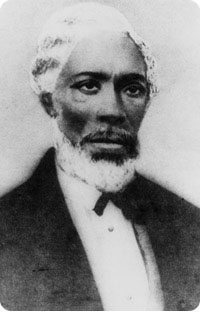
Anthony Bowen founded the first
African American YMCA in 1853.
- In 1844 George Williams launched the YMCA movement in London as a volunteer, and his example persisted in the expansion of the Y across the globe. In the United States early YMCA programs were run almost entirely by volunteers.
- The first “student YMCA” was started in 1856 at Cumberland University in Lebanon, Tennessee. Dedicated to the leadership development of college students, student Ys remain active on the campuses of major universities such as the University of Illinois.
- In 1853 the first YMCA for blacks was founded by Anthony Bowen, a freed slave, in Washington, D.C.
- Welcoming and engaging newcomers and immigrants has always been part of YMCA work. In 1856 the nation’s first known English as a Second Language (ESL) class was held for German immigrants at the Cincinnati YMCA.
- YMCA housing began in the 1860s to give young men moving to cities from rural areas safe and affordable lodging. Facilities included gyms, auditoriums and hotel like rooms. Chicago’s Farwell Hall, the first known YMCA dormitory, was completed in 1867. Between 1922 and 1940 YMCA accommodations grew from approximately 55,000 rooms to more than 100,000, more than any hotel chain at the time. Among those who stayed at YMCA residences were: journalists Andy Rooney and Dan Rather, black leaders Malcolm X and Dr. Martin Luther King, Jr., novelist Jack Kerouac, and U.S. Ambassador Andrew Young.
- In 1861 a conference with President Abraham Lincoln led to the full scale recruitment of YMCA volunteers. Eventually numbering 5,000, members of the U.S. Christian Commission served as surgeons, nurses and chaplain during the Civil War. The volunteers distributed medical supplies, food and clothing, and taught soldiers to read and write.
- The first YMCA buildings constructed with gymnasiums opened in 1869. In 1881 Boston YMCA staffer Robert J. Roberts coined the term “body building” and developed exercise classes that anticipated today’s fitness workouts.
Founding | 1800 – 1860s | 1870 – 1890s | 1900 – 1950s | 1960 – 1990s | 2000 – present

